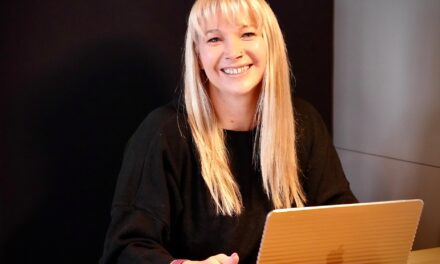Empower Your Recovery Journey
When Bulimia Meets GLP-1: Why Stopping Binges Doesn’t Mean Recovery
At first glance, it appears to be a miracle. A client with bulimia starts GLP-1 medication, and suddenly the binges stop. But beneath the surface, nothing has changed; shame, perfectionism, and emotional triggers remain. This blog explores why medication can’t replace trauma-informed recovery.
Beyond Medication
The Illusion of Quick Fixes in Bulimia Recovery
➔ “I stopped binging, isn’t that recovery?”
➔ “If the urge is gone, doesn’t that mean I’m better?”
➔ “Why do I still feel scared of food, even when I’m not overeating?”
Stopping behaviour is not the same as healing. Let’s dig into why
Understanding the Fear Behind Recovery
When the Binges Stopped, But the Fear Stayed
A young woman admitted in therapy: “I’ve been taking the injections, and I don’t binge anymore. It feels fantastic.” She was glowing with relief, but underneath, she was terrified. She hadn’t told anyone at first, worried she’d be judged.
When I asked if she wanted to keep the medication forever, she paused. Together, we explored what might happen when she stopped, and whether she could find tools beyond the syringe.
Uncovering the Real Issues
Why Bingeing Is a Symptom, Not the Root Cause
Bulimia is rarely about food. It’s about:
-
➔ Perfectionism and self-criticism
-
➔ Trauma responses
-
➔ Executive dysfunction and overwhelm
-
➔ Body image anxiety and rejection sensitivity
Medication may quiet the urge, but if the root is left untouched, the disorder shifts shape.
Navigating Temporary Solutions
What Happens When Bulimia Meets GLP-1 Medication
Temporary appetite suppression
GLP-1s reduce hunger cues, but they don’t remove shame, triggers, or thought spirals.
Risk of “silent relapse”
Without bingeing, clients may appear “better” but actually restrict, overexercise, or obsess in secret.
If taken at a healthy weight, the drug may strip lean muscle, slow metabolism, and weaken bone density.
Therapy gap
Some clients self-discharge, believing they’re “fixed.” Without therapy, relapse is almost certain when medication ends.
Stopping Binges Isn’t the Same as Recovery
Recovery isn’t about silencing urges; it’s about:
-
Learning to feel emotions without punishment
-
Building safety with food and body
-
Developing a structure that works for your brain
-
Finding compassion over criticism
True healing means you could stop the medication tomorrow and still know how to eat, cope, and live without fear.
5 Trauma-Informed Alternatives to Medication-Only Recovery
-
Meal structure matters. ➔ Three meals + snacks, even when appetite feels flat.
-
Name the urge, not the shame. ➔ Journaling or voice notes: “I want to binge because…”
-
Soften perfectionism. ➔ Practice “good enough” eating, not “perfect” eating.
-
Body image tools. ➔ Limit mirror checking, wear comfortable clothes, focus on strength, not size.
-
Therapy partnership. ➔ Use the safety of a non-judgmental space to test life without the drug.
Finding Recovery Beyond the Syringe
Medication may help stop behaviours. But true freedom means building resilience, self-worth, and safety with food, with or without a prescription.
I work with clients in Canterbury and online who feel trapped between shame, quick fixes, and fear of relapse. You deserve recovery that doesn’t vanish when the injection ends.
Reclaim Your Relationship with Food
Understanding True Recovery from Eating Disorders
If the binges stop, why isn’t that recovery?
Because the emotional, behavioural and neurological roots are untouched, meaning relapse risk is high.
Should I quit medication cold turkey?
No. Please always look for medical advice. Therapy can help you build a safe exit strategy while supporting your body and mind.
Join Our Supportive Community
Becky Stone: Your Guide to Recovery
Becky Stone is a compassionate and experienced eating disorder therapist based in the UK. With a focus on trauma-informed care, she supports individuals through personalized therapy sessions. Her expertise spans anorexia, bulimia, and binge eating, with a special emphasis on neurodivergent clients. Becky combines professional knowledge with personal experience to create a non-judgmental, supportive environment. She utilizes tools like the Recovery Record app to empower clients, helping them rebuild trust in themselves and their relationship with food.








